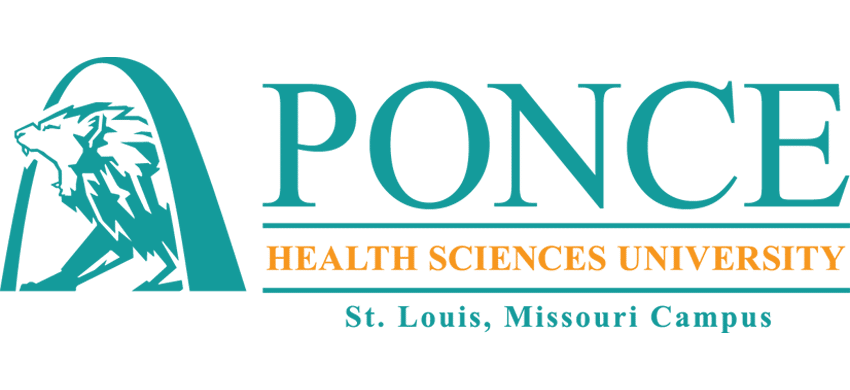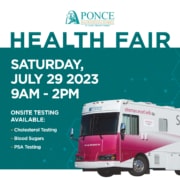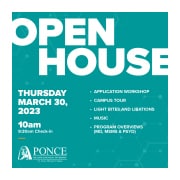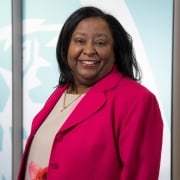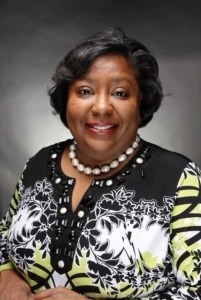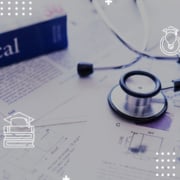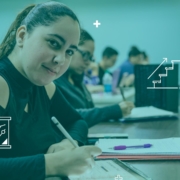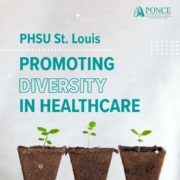The Master of Science in Medical Sciences (MSMS) at PHSU St. Louis is a rigorous and comprehensive pre-med master’s program that trains aspiring medical professionals to confidently step into their preferred career pathways in health sciences.
Graduates of the program become well-rounded candidates equipped to continue their education — such as medical school — or jump right into the workforce. These MS in Medical Sciences graduates have a plethora of options post-graduation.
Here, we’ll look deeper at the most common career pathways that MSMS graduates at PHSU St. Louis pursue.
#1: Medical Doctor
Candidates who go on to become medical doctors need to continue their education in a Doctor of Medicine (MD) program. Regardless of the medical school students apply to or get admission into, MSMS graduates get preference at Ponce Health Sciences University’s Medical School in Puerto Rico. This is the most common career pathway for MSMS graduates.
In fact, the top 20 percent of MSMS graduates earn an interview for PHSU’s Medical School program. Moreover, 75 percent of students who completed the first MSMS program obtained admission into medical school.
The salary for physicians and surgeons are among the highest-paid of all occupations with a median annual wage of greater than $208,000. Lastly, overall employment of physicians and surgeons is projected to grow 7 percent by 2028.
#2: Dentistry
Dental school is a rigorous program that takes four years to complete, followed by specialties. A career in dentistry is among the most common paths that MSMS graduates go into.
This career pathway requires a doctoral degree and has a median annual pay rate of $159,200. The career pathway is on pace for a three percent growth between 2019 and 2029.
#3: Veterinary
The responsibility of veterinarians is to care for the health of animals, thus contributing to public health.
As of 2018, the median pay is $95,460 per year and the level of education required is a Doctor of Veterinary Medicine degree, as well as a state license. Job prospects for veterinarians look very good, as they are expected to grow 16 percent by 2028, which is much faster than the average for all occupations.
#4: Podiatry
Students at PHSU St. Louis may choose to focus on podiatry after graduating MSMS program. Podiatrists are also doctors.
However, candidates attend podiatric colleges rather than a traditional medical school. Providing medical and surgical care for people with foot, ankle, and lower leg problems, podiatrists must earn a Doctor of Podiatric Medicine (DPM) degree and complete a 3-year residency program, and obtain a state license. The median annual wage for podiatrists is $126,240.
#5: Optometry
Becoming a professional optometrist takes four years of school to become a Doctor of Optometry, O.D. Students also have a one-year clinical residency for specialization that is optional.
Upon completing their education, optometrists diagnose and treat visual problems and manage diseases, injuries, and other disorders of the eyes. This is a great career path that has a median annual wage of $115,250. Additionally, jobs in optometry are projected to grow four percent in the next decade.
#6: Chiropractic
Candidates who choose this career path must earn a Doctor of Chiropractic (D.C.) degree and a state license to practice. D.C. programs typically take four years to complete in addition to undergraduate education.
Chiropractors treat health problems of the neuromusculoskeletal system with people across all age groups. The median annual salary for chiropractors is $70,340 and employment for chiropractors is projected to grow 7 percent by 2028.
#7: Pharmacy
In order to earn a Pharm.D., students must attend Pharmacy School, which takes four years of academic preparation in the professional program. Students may apply to Pharmacy School after earning a bachelor’s degree, but the MSMS program sets them up for success by giving them a jump start on health science-intense curriculum.
In addition to attending Pharmacy School, graduates of the professional program must also be licensed, which requires passing two exams. The annual salary for pharmacists is $128,090, a great career to get into as a culturally-competent healthcare provider.
#8: Pharmaceutical Industry
Pharmaceutical Science and Research
Pharmaceutical scientists and research experts are trained to discover, develop, test, and manufacture new medications. While most jobs in pharmaceutical science only require a master’s degree, individuals sometimes pursue a doctoral degree to qualify for advancement in research positions.
A pharmaceutical science job has an average salary of $88,790 and a projected job growth of 6 percent in the next decade. However, with experience and increasing responsibility, the salary can grow significantly.
Pharmaceutical Sales
Generally, pharmaceutical companies hire sales representatives who hold a bachelor’s degree or higher. This is a good option for individuals who have a knack for networking and creating relationships with clients. According to previous surveys, the national median salary for a pharmaceutical sales representative is around $91,977, according to ZipRecruiter, not including bonuses.
#9: Education and Teaching
Pursuing a career in academia requires individuals to obtain a Master’s degree at a minimum. However, this will depend on the academic institution. Some universities allow MSMS graduates to teach undergraduate level STEM courses, whereas four-year universities typically require a doctoral degree.
A full-time position in academia has an annual salary of $79,540. Overall, employment for university instructors projects for 9 percent growth by 2029, but the majority of the growth will be on the part-time level.
#10: Research — Medical, Environmental, Forensic, or Public Health
Students may start a career in research after successfully completing the MSMS. However, a doctorate degree is necessary if students want to move onto an advanced research career path. The majority of researchers work in research firms, nonprofits, corporations, colleges and universities, or government agencies; and the median annual wage for a researcher is $57,700.
The MSMS: Helping Medical Students reach Career Pathways
Whether you want to become a medical doctor or enter the medical workforce after earning your master’s, the MSMS helps medical students take the next step toward their preferred career pathways.
With a science-based curriculum that mirrors the first year of medical school, PHSU St. Louis is training future medical professionals that will are at the forefront of culturally-competent care.
Want to learn more about the MSMS? Contact PHSU St. Louis, or apply to the MSMS today!
